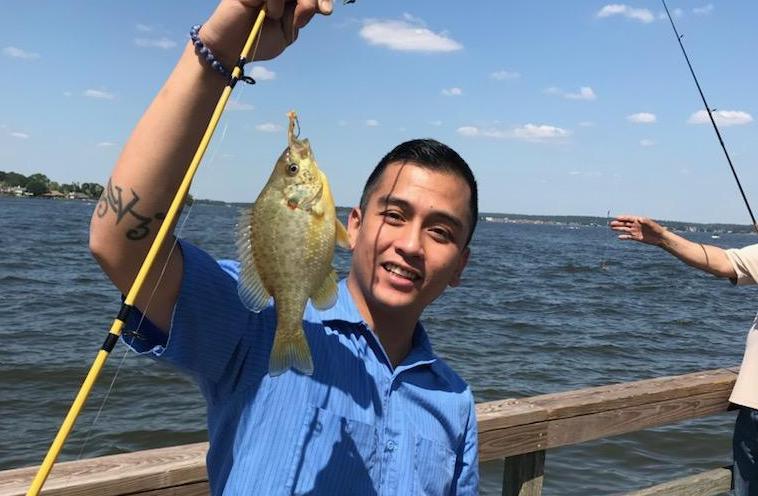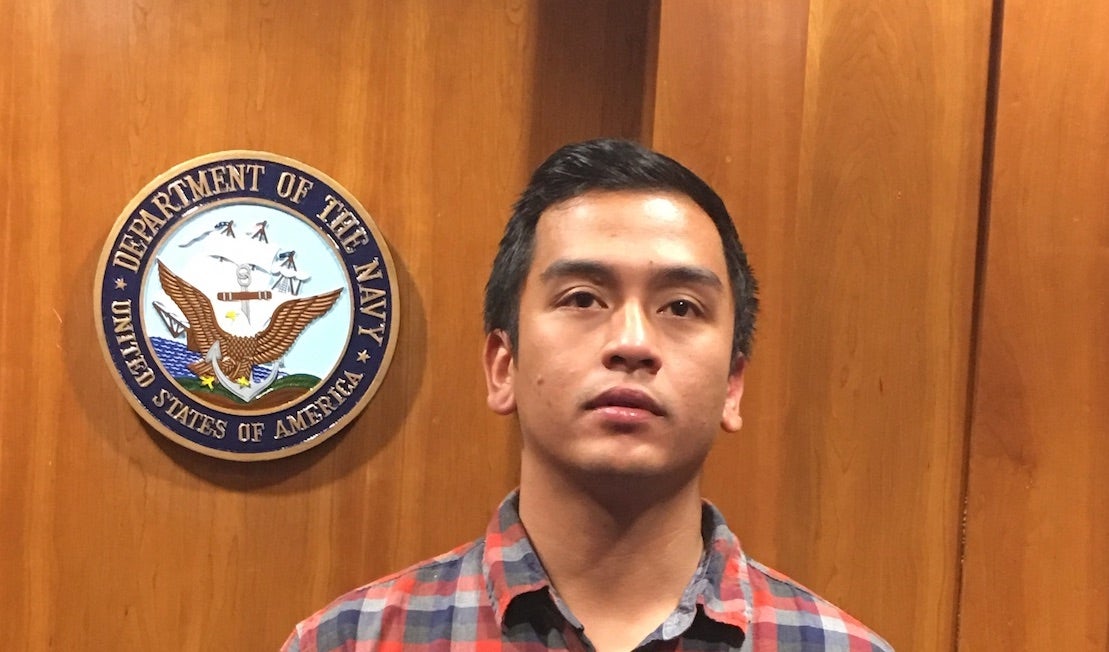George Floyd anniversary: Family say Angelo Quinto died after police knelt on his neck but they have no video to prove it
Angelo is not here with us anymore, but we will be his voice, his mother tells Andrew Buncombe


When the family of Angelo Quinto called the police two days before Christmas, they thought they would be able to help the mentally distressed young man.
As it was, the officers would end up handcuffing him and pinning him to the floor for up to five minutes, as one officer held his legs and another knelt on his neck. His mother became alarmed as he became uncomfortable, allegedly saying: “Please don’t kill me.”
Within minutes, 30-year-old Angelo Quinto lost consciousness, and three days later he would die in the intensive care unit of a hospital in Antioch, California.
“I was watching it the whole time. I was there. I saw everything unfold in front of my eyes in our bedroom,” his mother, Maria Cassandra Quinto-Collins, told The Independent.
She said she had discussed with the officers how her son had been acting erratically and had suffered a mental health episode. An ambulance was on the way.
“Whatever they did, kneeling on his neck, the whole time, it’s all unnecessary, because he wasn’t resisting,” she added. “He did not resist. He wasn’t violent. He was calm.”
Mr Quinto had been born in the Philippines, and came to the United States with his family. One of his dreams had been to join the US Navy, and he had passed the entrance test, until having to drop out because of an allergy, and was honourably discharged.
His family said he had not given up that dream, however, and had been considering if he could try out again.
As it was, the young Asian-American man who liked fishing and cooking, has become the latest of hundreds of unarmed young men, unarmed and seemingly offering no threat to officers, to die at the hands of police. In many cases, officers had been called to help someone with mental health issues, only for the incidents to suddenly escalate and end in tragedy.

“These Antioch police officers had already handcuffed Angelo but did not stop their assault on the young man and inexplicably began using the ‘George Floyd’ technique of placing a knee on the back and side of his neck, ignoring Mr Quinto pleas of ‘please don’t kill me’,” said the family’s lawyer, John Burris.
“This horrific incident provides a haunting reminder that a seemingly minor call for help from the police can have deadly consequences for the person in need of help when the police use force first without verbally assessing the situation. It’s a sad commentary on policing when a call for help results in death for the person needing help.”
The family said that for more than a month, the police failed to inform the civilian authorities of what had happened, and that elected officials only learned of it through a local newspaper, and then social media. A video that Mr Quinto’s mother took of him bloodied and unconscious after he had been handcuffed, later went viral.
At the time the tragedy was playing out before their eyes, the family did not know about the murder of George Floyd, killed by a Minneapolis police officer who knelt on his neck for nine minutes.
Yet in the days and weeks that have followed they have seen clear parallels between the killing of Mr Floyd, and the death of their son.
“Yes, no doubt. It is like George Floyd, with the techniques that they used,” said his mother.
His sister, Isabella, says had the family taken video at the time the incident was taking place, everybody would liken it to the case of the 46-year-old African American killed in Minneapolis a year ago.
Does the family believe race was a factor? Angelo’s stepfather, Robin Collins, who called him “son”, said it was difficult to untangle the various elements.
“There are many things, right,” he says. “Perceived power, social status, race, how likely somebody is able to fight back…”
He said had Mr Quinto been someone else, someone better connected or more influential, he is sure “the outcome would have been 1,000 per cent different”.
“But how do you separate out skin colour and all the other metrics [such as class] that we don’t tend to talk about,” he added. “What’s really clear to me is that, you know, race tends to associate itself in our society with all these other metrics. People are generally judged by it – by a compendium of these things now.”
Antioch police have rejected any wronging. At a press conference in March, police chief Tammany Brooks said police had gone to the house after being called by a family member.
“At one point during the handcuffing, an officer did briefly for a few seconds have a knee across a portion of Angelo’s shoulder blade, which is a common control technique taught in California POST [Commission on Peace Officer Standards and Training] approved police academies for prone handcuffing,” Chief Brooks said.
“At no point did any officer use a knee or other body parts to gain leverage or apply pressure to Angelo’s head, neck or throat, which is outside of our policy.”
He said that among the findings of an autopsy were that Mr Quinto had injuries consistent with struggling with both his family and officers, but that none were fatal. A public hearing, or inquest has not yet been scheduled.
The town’s recently elected mayor, Lamar Thorpe, who is African American, told an online symposium organised by the young man’s family that Antioch, 60 miles southwest of Sacramento, was once considered a “sundown” community by Black people, in that it was not safe to be on the streets after dark.
He said some of the changes he was trying to push in the police force and elsewhere were hitting up against opposition. He said police forces had dated from 1705 when men were sent out to capture escaped slaves. As to the long delay in his office learning of Angelo’s death, the authorities had “dropped the ball”.
“We have been working to fix historical wrongs,” he added.
The family is seeking to have its own medical tests performed. It has also filed a wrongful lawsuit against the Antioch police department. It is also campaigning for the passage of legislation, Assembly Bill 490, that would ban police from using restraints, including the knee-to-neck restraint, that cause positional asphyxia, within the state of California.
“The family is committed to trying to make it better, and making it so that other families don’t have to experience the same thing,” said Mr Collins.
“But it seems to me there are a lot of senseless deaths, and if policing were done in a way, or maybe not having police involved it would be very helpful to preventing this tragic and unnecessary deaths.”
His mother added: “Angelo is not here with us anymore, but we will be his voice.”
Join our commenting forum
Join thought-provoking conversations, follow other Independent readers and see their replies
Comments


Bookmark popover
Removed from bookmarks